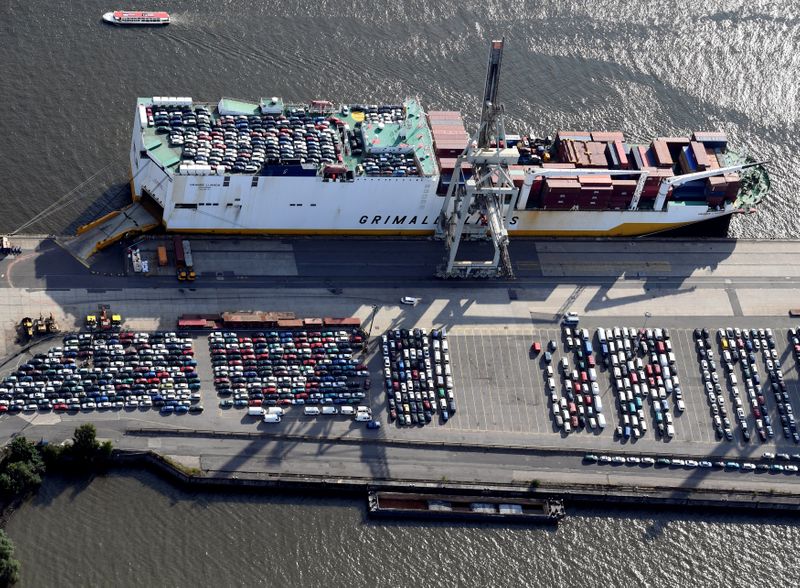BERLIN (Reuters) - German exports to Britain fell for the fourth year running in 2019, according to Statistical Office data seen by Reuters, as the weak pound dampened demand and uncertainty over post-Brexit trade regulations disrupted existing supply chains.
Exports to Germany's fifth-largest customer fell 4.2% to 78.7 billion euros ($85.00 billion), their lowest level since 2013, even as Germany's total exports rose 0.8% year-on-year to reach a record high.
"The main cause is the continuing uncertainty over the trade relationship after 2020, when the transition phase is over," said Martin Braml, a trade expert at the Ifo research institute.
Britain left the European Union at the end of January and has until the of the year to reach a bare-bones trade deal to replace the complete free flow of goods and services that Britain has enjoyed until now as a bloc member.
The future trade relationship is expected to disrupt many of the intricate cross-border supply chains upon which many industries, from automotive to aerospace, depend. A deal that would let that continue is widely thought to be unachievable in the 10 months remaining until the end of the transition phase.
Exports of cars, aircraft and aircraft parts, electronic equipment and pharmaceutical products had fallen, the data showed. Falls in trade within individual industries suggested that supply chains were already being dismantled.

"The best case in my view is that a customs agreement averts the worst fears (at the end of the transition), but we still won't have a deep and comprehensive trade agreement," Braml said.